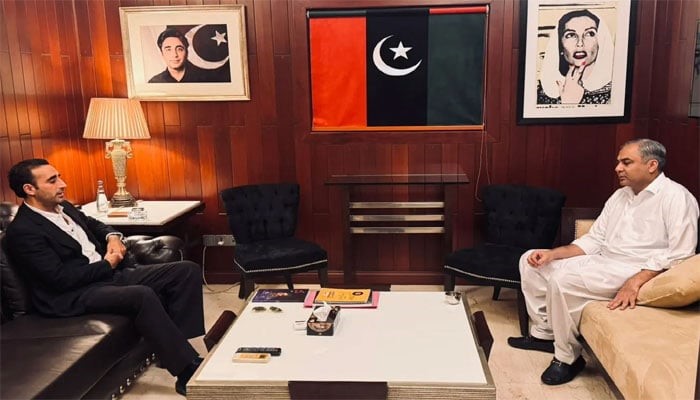Discussion between key figures from coalition partner’s focuses on national challenges, with both sides stressing need for ‘unity’

By our correspondent
ISLAMABAD: Pakistan’s Interior Minister Mohsin Naqvi met with Pakistan Peoples Party (PPP) Chairman Bilawal Bhutto-Zardari on Tuesday in Karachi in a significant political engagement, reflecting efforts to consolidate coordination among ruling coalition partners amid pressing domestic and security challenges. The meeting, held at Bilawal House, focused on the country’s overall political situation, law and order, and measures being implemented to ensure internal stability.
According to an official readout, Naqvi briefed Bhutto-Zardari on the steps taken by the government to enhance internal security. He detailed ongoing initiatives aimed at addressing potential threats and maintaining public safety, underscoring the importance of a coordinated approach to tackle emerging security concerns. The interior minister stressed that ensuring internal stability was a shared responsibility and required the active cooperation of all political stakeholders. “Everyone will have to work together for Pakistan’s internal stability,” the statement quoted him as saying, highlighting the central role of unity in navigating complex domestic issues.
Bhutto-Zardari welcomed the briefing and emphasized that the country’s current political and economic challenges could only be effectively addressed through consensus among coalition partners. He expressed satisfaction with the measures outlined by Naqvi and reiterated the importance of maintaining political cohesion to ensure governance continuity and public confidence. The PPP chairman also highlighted that a collective approach was critical not only for security but for broader national progress amid economic pressures and regional challenges.
Analysts observed that the meeting is part of a series of consultations between allied parties, designed to pre-empt political friction and reinforce coalition unity. By facilitating direct communication between top leaders, the engagement aims to create a shared understanding of priorities and strengthen decision-making processes at the highest levels.
The discussion also serves as a signal to the public and political observers that the government is actively monitoring security and political dynamics, and that coalition partners are committed to coordinated action. Observers said such high-level meetings are likely to continue as the administration seeks to implement security policies, address internal challenges, and maintain political alignment across the ruling parties, demonstrating a strategic focus on stability in a period of economic and social uncertainty.
By bringing the interior ministry and PPP leadership together, the meeting underscores the importance of dialogue, mutual consultation, and political cohesion as Pakistan navigates a complex domestic and security landscape.


